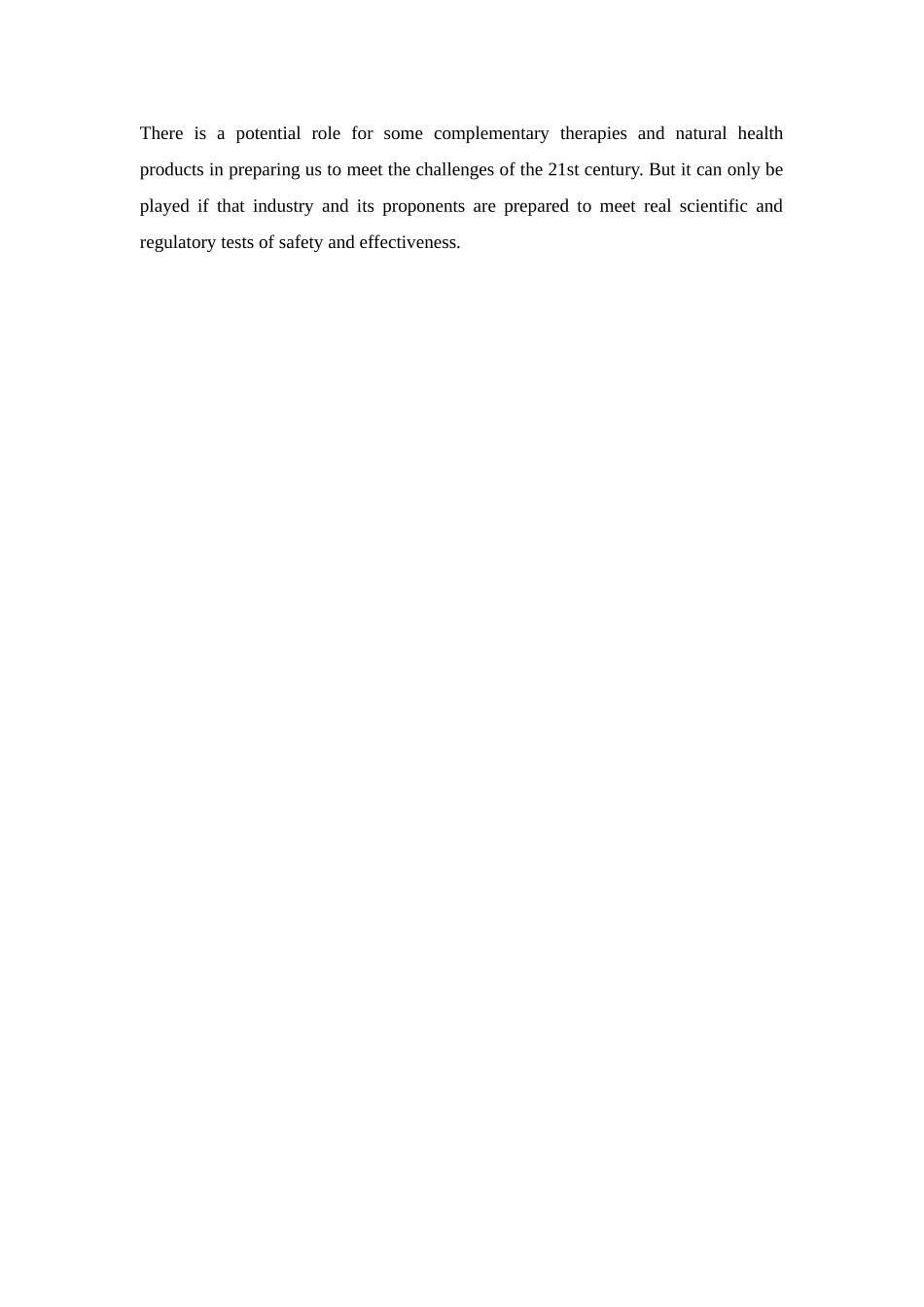The Future of Medicine In my 55 years as a physician, I've seen my share of what modern medicine can do. During the 40 years when I was a pediatric surgeon, I saw 95% mortality rates for congenital defects transformed into 95% survival rates because of what surgery can accomplish. As U.S. Surgeon General, I saw effective prevention and treatment techniques beat back the mortality from tobacco use and AIDS. And now, as an 85-year-old, my life has been prolonged and kept active by wonder drugs unknown to my parents. So it's been somewhat surprising in this era of triumph for modern medicine to see the rapid growth of alternative/complementary medicine, which is used by as many as one in three Americans. Although most of those still refrain from informing their regular physicians about that use, there is a growing tendency among physicians to acknowledge and even embrace certain forms of alternative/complementary medicine. Changes in the use of the terms "alternative" and "complementary" suggest the shape of this shift. At first, it was called simply "alternative medicine," reflecting a dissatisfaction with regular medicine as well as a cultural rebellion against the biomedical community. In more recent years, several studies indicate that there has been a shift from "alternative" therapies to "complementary" therapies, adopted not in opposition to regular medicine but in alliance with it. And increasingly those who use one of the many forms of complementary medicine are not treating a specific medical problem. Rather, they are practicing prevention in ways they find more congruent with their philosophical values or lifestyle. Now I think we may be seeing another refinement, one that is taking us...


